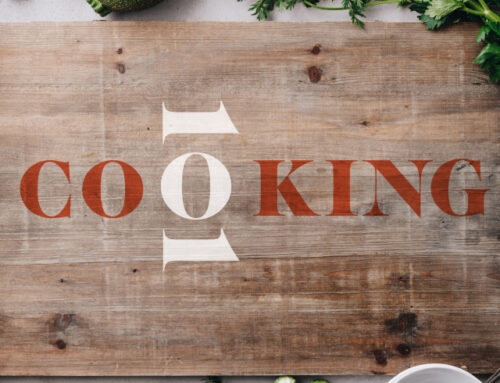To Tip or Not to Tip
by Cezanne Colvin

If you ever find yourself in the middle of an awkward and drawn-out silence at a dinner party, just mention tipping. All it takes is a breezy “What do you guys think about tipping?” and suddenly everyone has something to say. Someone remembers when a 10 percent tip was enough, someone was a server in college and has something to say to that person, someone is a server currently and also has something to say, someone can’t do math, someone thinks restaurateurs should just pay their employees a fair wage already, and you’ve gone from dinner guest to debate moderator. It’s true: tipping is controversial. How much is enough? Why do we tip? Do servers benefit from the practice? Do patrons? And, really, should we even keep tipping? It’s complicated.
A LOVE LETTER TO TIPPING
Hear me out: tips are one of the last tangible forms of control in this cruel and indifferent world. We need to defend them as if they were our very own newborn cubs (or perhaps our last Oreo, K-cup, or martini, depending on personal priorities). When we, as restaurant guests, give a tip, we are not only reflecting the service bestowed upon us, but we are literally deciding someone’s salary. When we, as restaurant servers, work for a tip, we are not dragging our feet with dread for a steady paycheck—we are hustling and looking for recognition of our hustle during that electrifying reveal of what’s scrawled in ballpoint on the tip line.
The promise of tips has lured me to work, spread a genuinely giddy smile across my face, and propelled me into the dining room to perform the precarious act of juggling the needs of my hungry benefactors. In time, I came to think of myself as less of a server and more of an independent dining experience contractor (not that there’s anything wrong with the term “server,” but it is precariously close to the word “servant”). Yes, servers take requests, but it’s all part of a bigger picture to foster a positive culinary adventure.
A positive culinary adventure is something you must be guided through, and for someone to be invested in your adventure, a reciprocal investment must exist. We do not work for the restaurants where we serve. We are loyal to them, yes, but we do not work for them. We work for you, the guest. You are the boss, but we are the experts, and for the hour or two that you are in our offices, we escort you through your meal with recommendations, tone, and pace. You pay to feel as though you are our only priority, and you are.
The agreement between guest and server is a sacred one, an unspoken social contract, one of the few remaining widely practiced traditions of this great land. As a guest, you expect to relax and be taken care of. You expect to ask for things and have those things appear in the timeliest of manners. You trust us implicitly, and we deliver.
This arrangement inspires servers. Beyond that, it gives us a personal stake in the success of the restaurants in which we work. When the restaurant does well, we do well. Restaurants are one of the few places where, when brimming with chaos and wait times runneth over, the front of house staff is excited. (Stressed, maybe, but excited.) The busier we are, the more money we make, which means serving is one of the last remaining jobs where our efforts are proportionate to the rewards. Every Friday and Saturday evening in a restaurant is like the holiday season in retail, but the disdain present in a tired clerk’s eyes is noticeably absent from your server’s for one reason: tips. That a server’s livelihood depends on a guest’s satisfaction is, to some extent, trickle-down happiness, but a model that encourages universal happiness doesn’t sound too broken to me.
Perhaps tipping encourages a bit of competitiveness amongst staff rather than teamwork, but what’s wrong with a little healthy competition? Tipping leaves bad servers to flounder, while good servers are rewarded with loyal guests, large sections, and generous compensation.
And then there’s the idea that restaurants are outsourcing servers’ salaries to its patrons. Just pay servers a living wage and do away with tipping, some might say. The concept of “a living wage” is already murky territory, but no matter how the check is cut, restaurant guests will always be the ones to pick up the tab. Tips will merely be absorbed into newly padded food and drink costs.
Those who tip below 20 percent, the modern standard for good service are often cited as part of the reason why tipping is unfair, but most servers will tell you that the ebb and flow of tips tends to even out by the end of the night. The 10-percent-before-tax-is-generous crowd (yes, they exist) and the people who hold tips hostage because the chef’s well done wasn’t done well enough are mostly normalized by generous diners peppered through the crowd.
Sometimes servers get 40 percent, sometimes servers get 5—it’s all part of the job we signed up for. We might complain, but there’s something special about bending over backwards for a guest and, every now and again, seeing your contortion handsomely rewarded. There’s nothing sweeter than showing off your super-sized tip to your coworkers and knowing that they absolutely hate you right now.
Get rid of tipping and get rid of the guaranteed special service that comes with dining out. Some good servers will remain, perhaps, but most will move on to careers where pep and charisma is proportionately rewarded with commission. If servers didn’t want to work for tips, we would have picked another industry.
HERE’S A TIP: LET’S MAYBE NOT
Tipping is the antithesis of the American Dream. It’s not even American born, so some might say we should usher it out the back door. Tipping, as it turns out, came from Europe. (Another European creation: the guillotine.) In the 17th century, overnight guests of the European upper class were expected to leave tips for the servants, and Americans who traveled to Europe after the Civil War brought back to the practice of tipping as a souvenir of their newfound culture.
Not all Americans were fond of this import. They were especially wary of embracing a practice that reinforced the aristocracy they had fought so hard to escape. They viewed it not only as undemocratic, but also as a way to create a servant class.
To some extent, this view of a lesser class is very much alive: we do not tend to get excited that our children have graduated from college to become servers, nor do we boast about acquiring bussing jobs or marrying the host at a local chain restaurant. Much of this has to do with how successful jobs tend to be defined: success comes packed neatly in a box with a steady paycheck, paid time off, health benefits, and retirement accounts. In a pivotal episode of the beloved television show Friends, one of the major points that Ross had against dating Rachel was that she was “just a waitress.” Ouch.
I cannot count the number of times, while serving, that guests would gently ask when I was going to find a “real job,” as if busting my tail for the past six hours was, actually, an intramural sport. Despite the fact that servers tend to make more than the kitchen staff (which is a separate and conversation-worthy issue) and have better hours, their job is often thought of as less important, more temporary, and more trivial—perhaps because tips make up their salaries.
Speaking of salaries, they’re entirely dictated by the restaurant’s prices and the guest’s appetite. The broken custom of tipping rewards printed numbers on a menu instead of the worker’s effort. Here’s a simple case of it in action: if you order two $16 glasses of wine and you’re a 20 percent kind of tipper, you’re tipping 20 percent on $32. Similarly, if you order two $3 pints of a domestic draft, you’re tipping on $6. The server’s exertion for both orders are equal, but the financial reward is different. Why? There’s yet another side to this: some savvy servers will recommend unnecessary appetizers and roll out tempting dessert carts not out of their innate desire to satiate you, but because the more you spend, the more they make.
Another factor to examine is job jumping and staff turnover. Restaurant industry turnover is 20 percent higher than in the private sector, possibly because there’s no reason for a server to be loyal to her employer. With no possibility of promotion or job security, what’s to stop a server from jumping ship to a trendy new cafe or following a friend who recently moved to a different restaurant? The rippling effects of high turnover extend far beyond the server. Owners and managers now have to devote time to finding and interviewing new candidates, not to mention training them. Until a new candidate can be found, the remaining servers may have to run short-staffed on busy nights, which hurts service, the restaurant’s image, and the servers’ own tips.
Those issues aside, tipping fosters a hostile work environment, particularly for women, who make up 71 percent of the serving workforce. One study showed that 80 percent of female servers reported being sexually harassed on the job. Indeed, it may be part of a day’s work for a female server to tolerate lewd remarks and stares while they’re on the clock—and all with a smile. Most people have workplace unpleasantries that they grin and bear because of the necessity of having to pay the bills, yes, but this takes those unpleasantries to the next level. While they could perhaps involve a manager or pawn the patron off on another server, the loss in wages that would result from such a move keeps servers silent and compliant, perpetuating this
demeaning culture.
I know, this got heavy pretty quickly, but not as heavy as the cumulative disdain we can agree that we all have for tipping. It’s just awkward. If you just get a soda and a snack at lunch and the server never even checks on you, is it okay to leave 15 percent? If you go out to dinner with your needy uncle, do you have to up the tip to offset his demands? If the gratuity is included because you have a large party, but it’s a really nice restaurant, are you supposed to throw in a little more? If your father-in-law, a notoriously terrible tipper, picks up the tab at your favorite spot, how are you supposed to show your face there again next week? If a guest leaves and absentmindedly takes the restaurant’s copy of the receipt or forgets to leave a tip, is it appropriate to follow him out and inquire as to his intentions?
Just give us a flat fee to pay like we’re getting an oil change or library book, we’ll pay it, and we’ll be on our way. Everyone wins.
As seen in the Winter/Spring 2017 Issue
Click to Visit Our Advertisers




